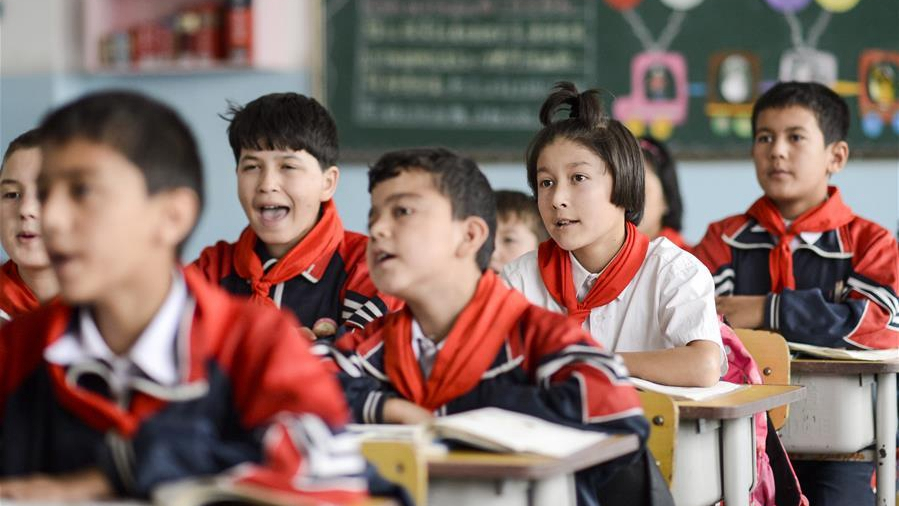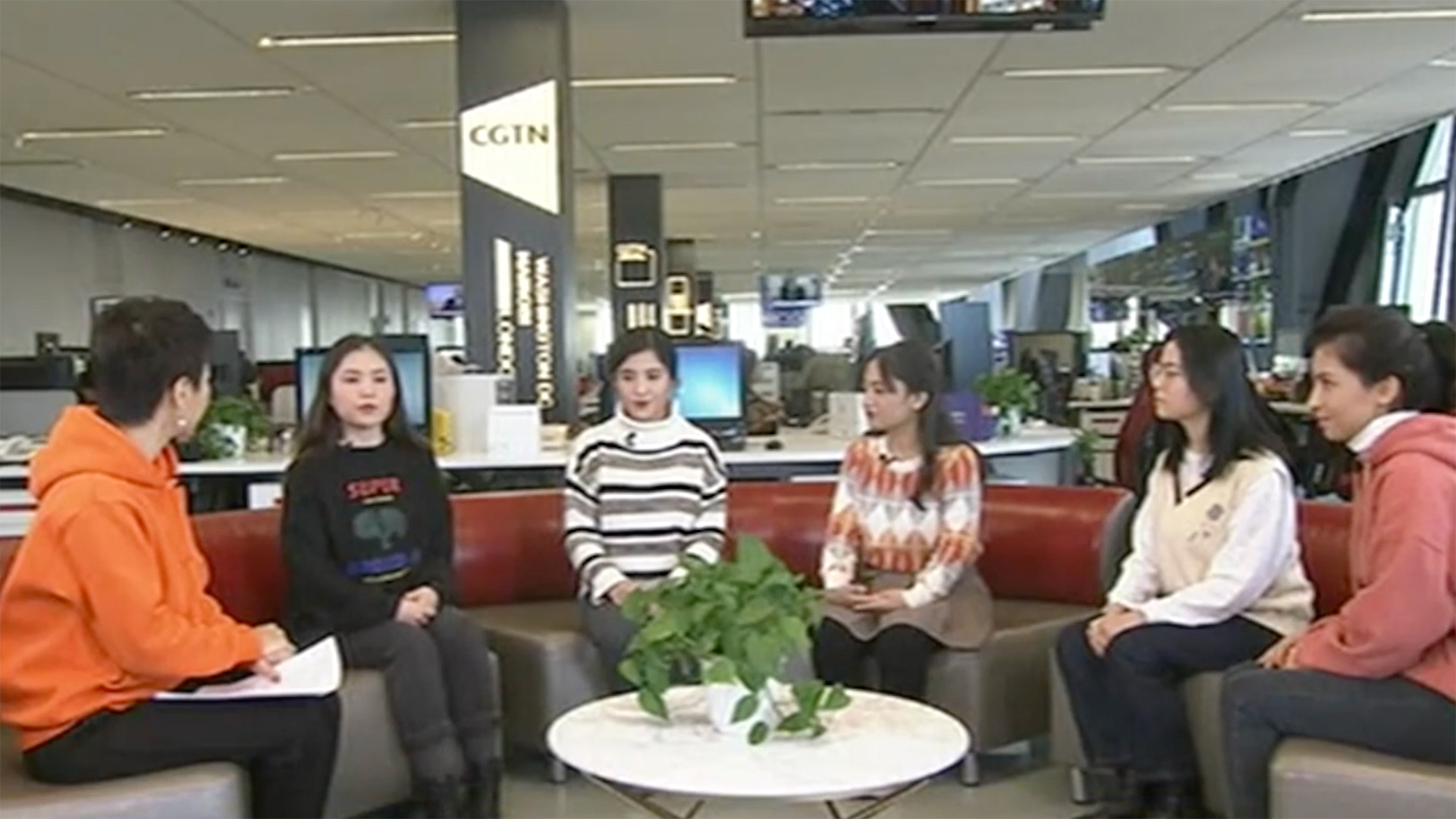00:36

More students in western China's Xinjiang Uygur Autonomous Region now have the opportunity to study in more developed areas of the country. According to official data, Xinjiang has offered financial aid to 17,800 students to study in inland areas since 2016. But what are the local attitudes toward these changes? What's it like to be a Uygur student in Beijing or other large inland cities?
Five Xinjiang students from Atux, a county-level city of the Kizilsu Kirgiz Autonomous Prefecture in southern Xinjiang, have benefited from this favorable government policy and the help from social organizations. They explained to CGTN's The Point what it means to study in inland regions.
Horigul Tursun, now a student at Nanjing Audit University, said with the help of the Beijing Meijiang Education Foundation, she was brought to the city for elementary education and to inland cities for secondary school, which further allowed her to apply for better colleges.
The thousands of students who received support are mostly from the deprived prefectures of Aksu, Kashgar, Hotan, and Kizilsu, the most poverty-stricken regions in southern Xinjiang.
01:26

Financial subsidies for students from low-income families, for example, have been increased to ensure children can access nine years of compulsory education. In southern Xinjiang, all students have access to three-year preschool education all the way to senior high school, according to Xinhua.
Talking about the education itself, Pashagul Aj, a student at the Central University of Finance and Economics, explained that in her hometown, previously, almost all the textbooks were written in Uygur language. By receiving education in cities, she was able to learn Mandarin Chinese from scratch.
The students all considered learning Mandarin very important. "Because China is getting more and more influential, and even many foreigners are learning Mandarin. As a Chinese person, I feel like we must learn this language well. Only through this can we adjust to life in big cities," said Dilnur Rusul, a student at Capital Normal University.
Munawar Helimu, a student at Beijing Wuzi University, further added on this point, explaining that now Mandarin is much more popular in Xinjiang and students can access Mandarin from a very early age.
00:51

At the same time, they are learning and developing their own language and culture as well. "We learned Mandarin Chinese and our native language at the same time. We certainly will not forget our mother tongue," she said.
When it comes to the experience of studying in places very far from their hometown, the students admitted that difficulties surely exist.
"When we were at school, I didn't speak Mandarin Chinese very well, and whenever I was in class, I was very afraid that the teacher would ask me questions. Later, as I communicated more with my friends at school, my Mandarin Chinese also gradually improved," said Munawar Helimu.
The language barrier is only one aspect. The students also talked about the misunderstanding they have faced when it comes to Xinjiang.
"There are people who still think Xinjiang is very backward. This was the case decades ago. They just think that Xinjiang is still very backward and hasn't developed that much," said Nadira Adil, a student from Beijing University of Chemical Technology.
Horigul Tursun added that "we are so used to putting labels on places that we haven't been to or don't know much about. Usually, the labels were formed years ago and are outdated."
00:22

Horigul Tursun also used her family as an example to explain how things have changed over the years. "The living condition of our family has also improved significantly in recent years. My dad sells mutton, and since there's an interest-free loan, my dad applied for this loan. Our family has 20 sheep now and applied for an interest-free loan of 30,000 yuan. We've benefited a lot from this policy. Our family recently moved to a new house and got subsidies from the government. Also, we didn't have a heating system before. But this year, all the houses in our neighborhood have been provided with heating systems."
Official data says more than 2.38 million people in Xinjiang have been lifted out of poverty. According to Shohrat Zakir, chairman of the regional government, the poverty headcount ratio in Xinjiang has dropped from 22.84 percent at the beginning of 2014 to 6.51 percent.
Talking about the career plan, the students all expressed their wishes to go back to their hometown to apply what they have learned to local development.
"When I return to my hometown after graduation, I'll teach history to local students. I'll definitely do my best and help them to study in inland areas. I'll also encourage them to come back to develop Xinjiang after seeing the bigger world," said Dilnur Rusul.
Horigul Tursun also expressed similar views. "The government has sponsored us to receive a better education in inland cities. When it comes to Xinjiang's local development, we feel the need for us to go back."
The Point with Liu Xin is one of the main current affairs programs on CGTN. The 30-minute program comments on global news through Liu Xin's very own unique perspective. With two decades of experience as a news anchor and overseas correspondent, Liu Xin has an engaging and personal style. The Point with Liu Xin connects world audience through social media, enhancing their participation as well as offering a comprehensive perspective on world events.
Schedule: Monday-Friday
Time (GMT): 1330, 2130, 0230
(If you want to contribute and have specific expertise, please contact us at opinions@cgtn.com.)